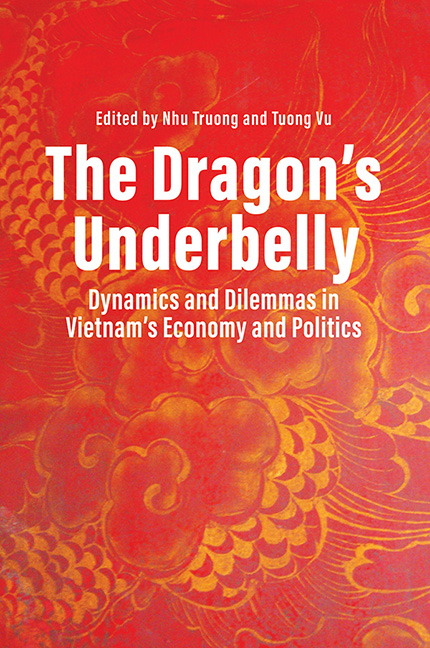Chapter 12 - The Where and Why of Political Protection in Vietnam’s Anti-Corruption Campaign
Published online by Cambridge University Press: 09 January 2024
Summary
In November 2018, when general secretary of the Vietnamese Communist Party (CCP) Nguyen Phu Trong became the first leader of post-war Vietnam to hold simultaneous control of both party and state leadership positions, many could not resist the comparison between him and his counterpart Xi Jinping in China. Yet, years before opinion pieces started debating whether Trong is the new Xi, parallels between them had already existed. They go back to the start of their anti-corruption campaigns—China’s in 2012 and Vietnam’s in 2016. In these campaigns, both leaders promised an unprecedented war against corruption that would leave no stone unturned. While Xi vowed to target “both the tigers and the flies” (laohu cang ying yiqida), Trong also declared that his campaign would leave “no restricted zone and no exception” (khong co ngoai le, khong co vung cam).
Fast forward to 2020. Four years after the start of Trong’s campaign and eight years after the start of Xi’s, to what extent have the two leaders delivered on their promises? Besides the unsurprising ovation in both countries’ state media, the two campaigns have attracted as much praise as criticism from outside observers and experts. On one hand, the campaigns have been criticized as veiled excuses for political infighting—a popular sentiment among scholars and even within the party ranks (Thayer 2017; Zhu and Zhang 2017; Hutt 2020). More broadly, the criticisms echo a political science literature that casts doubt on the willingness and ability of authoritarian regimes to mount effective anti-corruption efforts. To this research body, the unwillingness of autocrats comes from the fact that not only can they use corruption rents to attract supporters (Geddes 1999; Bueno De Mesquita 2003), but they can also easily respond to corruption-related discontent with censorship or repression (Wintrobe 1998). The lack of capacity, on the other hand, is rooted in the absence of the democratic checks and balances that enable deterrence, detection and disciplining of corrupt acts such as free media, electoral accountability or civil society (Rose-Ackerman 1996, 1999; Johnston 2005).
From another perspective, a sizable strand of the literature has pointed to the role of authoritarian accountability institutions.
- Type
- Chapter
- Information
- The Dragon's UnderbellyDynamics and Dilemmas in Vietnam's Economy and Politics, pp. 342 - 366Publisher: ISEAS–Yusof Ishak InstitutePrint publication year: 2022



